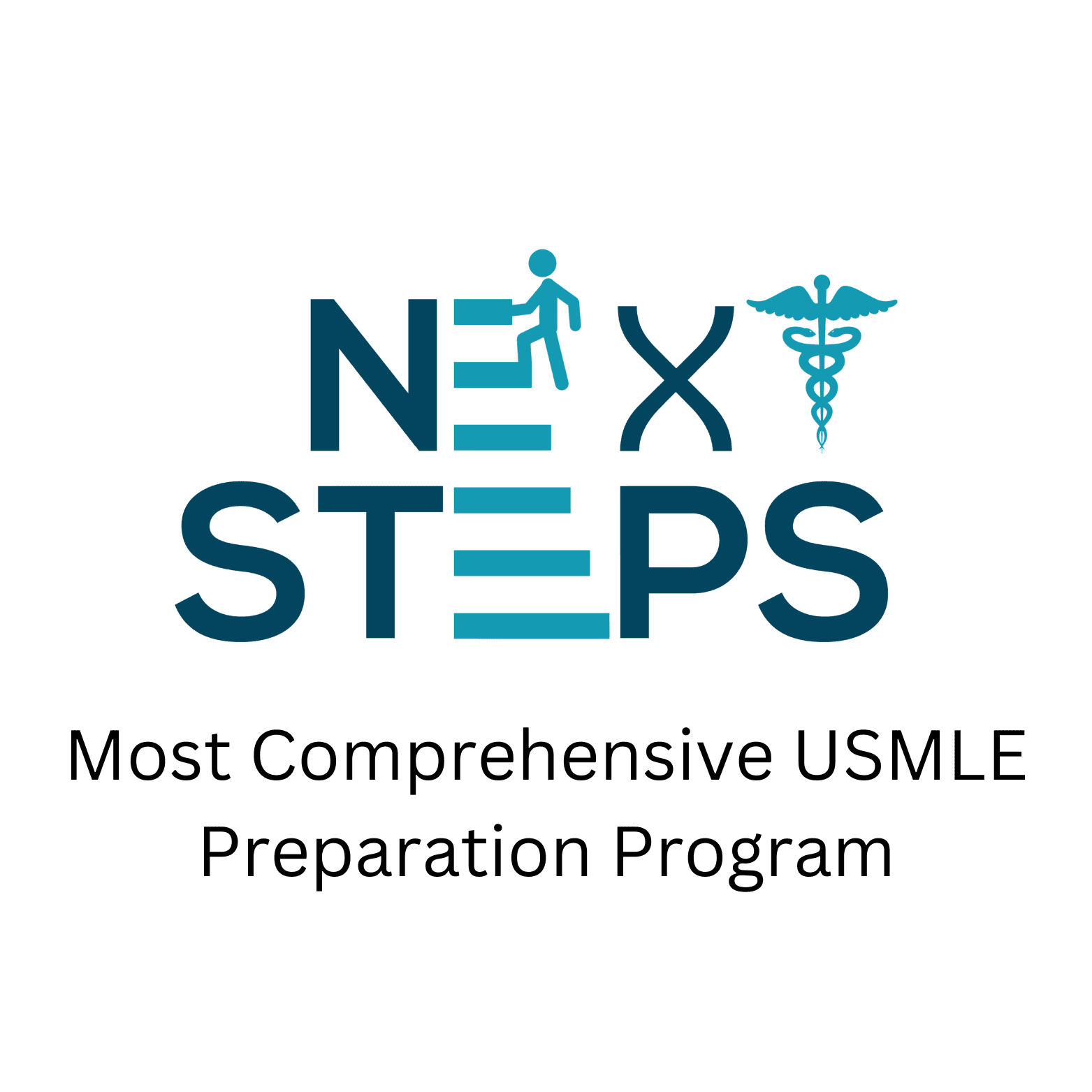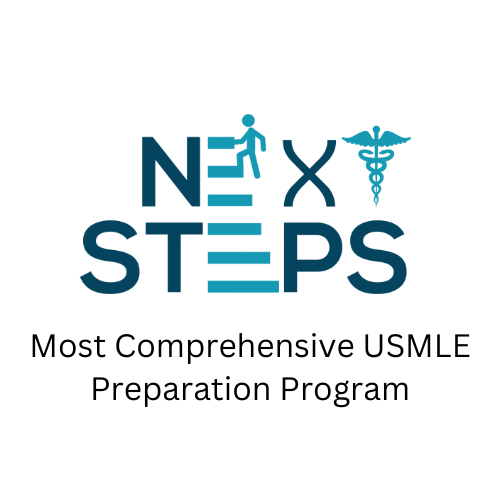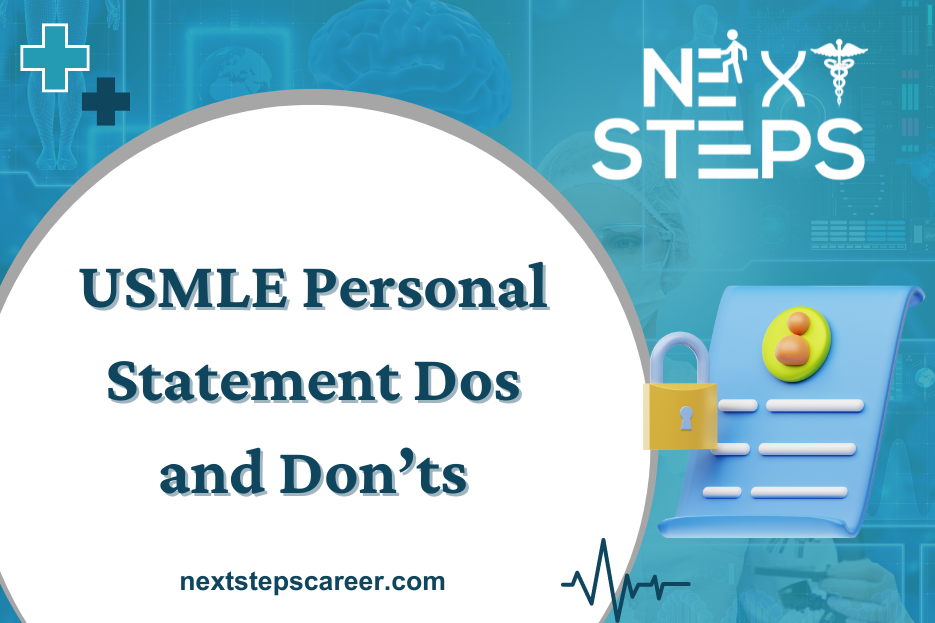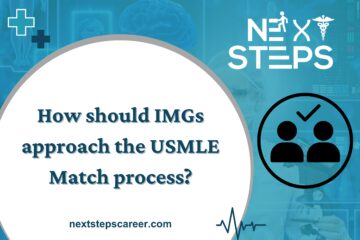The USMLE personal statement is a crucial component of your residency application. It provides an opportunity to present your story, showcase your strengths, and explain why you are a perfect fit for the residency program. Crafting a compelling personal statement requires careful thought and strategy. Here are some essential dos and don’ts to help you create a standout personal statement.
Dos for Your USMLE Personal Statement
- Do Start Early
- Plan Ahead: Give yourself ample time to brainstorm, write, and revise your personal statement. Starting early ensures that you can refine your thoughts and ideas, resulting in a polished final product.
- Do Highlight Your Unique Experiences
- Personal Touch: Share specific experiences that have shaped your medical journey. Whether it’s a memorable patient interaction, a research project, or a volunteer activity, unique stories make your statement memorable.
- Do Reflect on Your Motivations
- Explain Your Passion: Clearly articulate why you chose medicine and your specialty. Reflect on what drives you and how your experiences have reinforced your decision.
- Do Show Self-Awareness and Growth
- Acknowledge Challenges: Discuss any challenges you’ve faced and how you’ve overcome them. Demonstrating resilience and a willingness to learn from mistakes can highlight your maturity and adaptability.
- Do Tailor Your Statement to the Program
- Specific Fit: Research each program you’re applying to and tailor your statement to show why you are a good fit. Mention specific aspects of the program that align with your goals and interests.
- Do Be Honest and Authentic
- Genuine Voice: Write in your own voice and be sincere. Authenticity resonates more than trying to impress with exaggerated claims or flowery language.
- Do Use Clear and Concise Language
- Clarity is Key: Make sure your statement is easy to read and free of jargon. Use clear and concise language to convey your points effectively.
- Do Proofread and Edit
- Error-Free: Carefully proofread your statement for spelling, grammar, and punctuation errors. Consider seeking feedback from mentors, peers, or professional editing services.
Don’ts for Your USMLE Personal Statement
- Don’t Rehash Your CV
- Avoid Repetition: Your personal statement should complement your CV, not repeat it. Focus on the narrative behind your achievements rather than listing them.
- Don’t Use Clichés and Generic Statements
- Be Specific: Avoid clichés like “I’ve always wanted to be a doctor” or “I love helping people.” Instead, provide specific examples that illustrate your points.
- Don’t Exaggerate or Fabricate
- Be Honest: Stick to the truth. Exaggerating or fabricating experiences can be easily detected and can severely damage your credibility.
- Don’t Overuse Medical Jargon
- Simple Language: While it’s important to show your medical knowledge, overloading your statement with technical terms can make it difficult to read. Strike a balance by explaining concepts in simple terms when necessary.
- Don’t Ignore the Word Limit
- Stay Within Limits: Adhere to the word limit provided by the application guidelines. A concise, well-crafted statement is more impactful than a lengthy, verbose one.
- Don’t Be Negative
- Positive Tone: Avoid complaining about past experiences or speaking negatively about previous institutions or colleagues. Focus on positive outcomes and what you’ve learned.
- Don’t Use Humor Inappropriately
- Professional Tone: While a touch of personality is welcome, avoid humor that could be misinterpreted or deemed unprofessional. Maintain a respectful and serious tone throughout.
- Don’t Forget to Explain Gaps or Weaknesses
- Address Issues: If there are gaps in your education or low scores, briefly address them and explain what you’ve done to overcome these challenges. This shows accountability and a proactive attitude.
Crafting a Strong Personal Statement: Example Outline
Introduction:
- Briefly introduce yourself and state your interest in the specialty.
- Include a compelling anecdote or a personal story to grab the reader’s attention.
Body:
- Discuss your clinical experiences and how they have prepared you for residency.
- Highlight any research or academic achievements relevant to the specialty.
- Reflect on significant challenges and growth experiences.
- Explain your motivations for choosing this specialty and how your background aligns with your career goals.
Conclusion:
- Summarize your key points and reiterate your enthusiasm for the specialty.
- Mention why you are a good fit for the program and how you can contribute.
- End with a forward-looking statement expressing your excitement about the future.
Conclusion
Your USMLE personal statement is a vital component of your residency application, offering a unique opportunity to present your personal narrative and professional aspirations. By following these dos and don’ts, you can craft a compelling and authentic statement that resonates with program directors and strengthens your application. Remember, a well-written personal statement can make a significant difference in your residency match success. Good luck!





